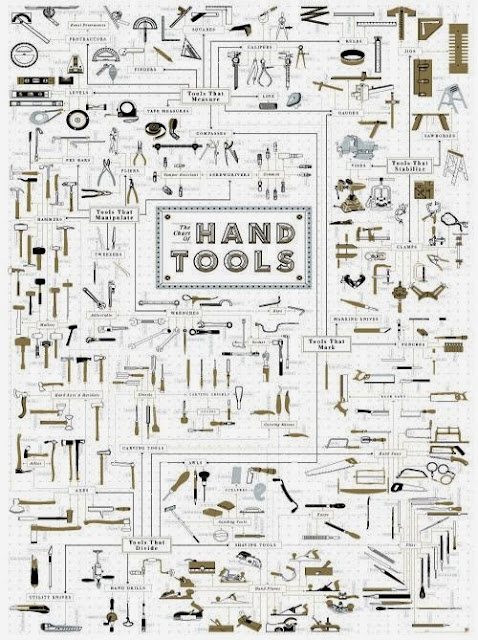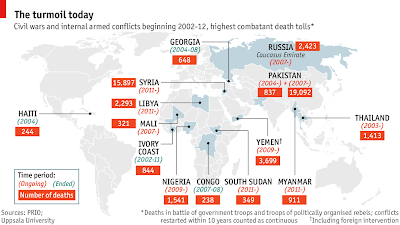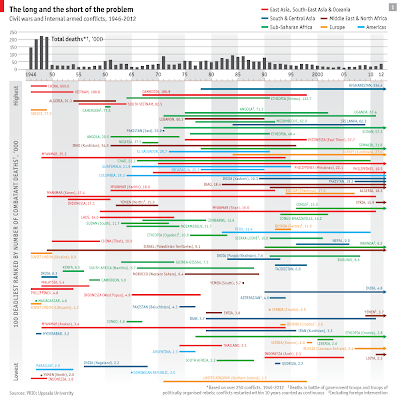30 November 2013
City of Bikes ~ Streetfilm Notes from Amsterdam!
Velo Mondial's Pascal van den Noort spotlights Streetfilms offering Bicycle Anecdotes from Amsterdam...
Soda / Pop / Coke ~ Map of American Dialects;-)
Thanks to io9's Lauren Davis for spotting The Atlantic's Katherine Wells's Soda / Pop / Coke, a visual remix of the American dialect survey by Bert Vaux...
Somewhere in America ~ Covering Fashion!
MIT friends and more share what's going on Somewhere In America...
29 November 2013
A Location to Remember ~ Villefranche-sur-Mer...
The most memorable part of An Affair to Remember -- i.e. the ultimate chick-flick as immortalized in Sleepless in Seattle -- was for me not the Empire State elements but rather the brief stopover in the French Riviera, Villefranche-sur-Mer to visit a lovely house atop the hill. Not clear how much of this is on-location versus in-studio, but in any case, I like the aesthetics... 









Helmreich's New York ~ Walking the Metropolis...
 Thanks to PD Smith for reviewing The New York Nobody Knows by William B Helmreich in the Guardian...
Thanks to PD Smith for reviewing The New York Nobody Knows by William B Helmreich in the Guardian... "Sociologist William B Helmreich was born and grew up in New York City. As a boy, he and his father played a game called "Last Stop". It involved riding the subway from the station at 103rd Street near their Upper West Side apartment to the last stop on the line. Then, like intrepid explorers, they would discover the area's secrets on foot. (Helmreich's father died in 2011 at the age of 101.) In a sense, this book is a continuation of that urban game. To write The New York Nobody Knows, Helmreich walked 6,048 miles, covering almost every block in the city's five boroughs: Queens, Manhattan, Staten Island, Brooklyn and the Bronx. It took him four years, walking an average of 1,512 miles a year. He wore out nine pairs of shoes. Helmreich admits that "you have to be a little crazy to explore the city as I did". But big cities do that to you. [...] It's refreshing to read a book that celebrates so unreservedly the ethnic diversity of a city and entirely fitting that it should be about a metropolis that has always been defined by its cosmopolitan culture. For Helmreich, the city's diversity is the well-spring of its success."Be sure to also check out PD Smith's own book, City: A Guidebook for the Urban Age.
28 November 2013
East African Railway ~ Kenya Starts Building...
The BBC writes Kenya launches new railway to reach South Sudan and Burundi...

"Kenya has formally launched a new, Chinese-financed railway which should extend across East Africa to reach South Sudan, DR Congo and Burundi. The first section will link the Kenyan port of Mombasa to the capital, Nairobi, reducing the journey time from 15 hours to about four. It is said to be the country's biggest infrastructure project since independence 50 years ago. The cost of the railway will be $5.2bn (£3.2bn) -- mostly funded by China. Some Kenyans have complained that the contract was given to the Chinese state-owned China Road and Bridge Corporation (CRBC) without going to tender."

26 November 2013
EarMachine ~ iOS Hearing Enhancement App...
Thanks to MedGadget for spotting the EarMachine, a Free iOS App for Hearing Problems...  If we combine this sonic adjustment app with noise cancellation, whisperware, voice recognition, translational "babelfish" apps and we can really make progress towards Smartbuds, the acoustic analog to Glass.
If we combine this sonic adjustment app with noise cancellation, whisperware, voice recognition, translational "babelfish" apps and we can really make progress towards Smartbuds, the acoustic analog to Glass.
"Smartphones have essentially the same hardware as hearing assist devices, including a microphone, analog-to-digital converter, and a CPU to process the audio and modulate it to the specific user. The EarMachine is a new app that harnesses the power of iPhones to do just that."
 If we combine this sonic adjustment app with noise cancellation, whisperware, voice recognition, translational "babelfish" apps and we can really make progress towards Smartbuds, the acoustic analog to Glass.
If we combine this sonic adjustment app with noise cancellation, whisperware, voice recognition, translational "babelfish" apps and we can really make progress towards Smartbuds, the acoustic analog to Glass.
Ward's First Year ~ From Premie to 1yo Homeboy!
As wonderful illustration of Dr Koven's thesis In Practice, we have the lovely mini-documentary of Ward's First Year spotted by MissC... Says proud filmmaker-father, Benjamin Scot Miller...
"I want to thank all the doctors, nurses, and staff all over the world that make it their life's mission to help babies get better! It's because of you that my son ever stood a chance to make it home!"Extra goodness and photos at HuffPo.
Labels:
Beauty,
Birthday,
Documentary,
Family,
Healing,
Health,
history,
HuffPost,
Kids,
MissC,
Stories
In Practice, MD ~ "Routine" Medical Miracles!
MGH primary care internist Dr Suzanne Koven writes in her Globe column In Practice that Thanks to advances in medicine, life goes on...
"Many years ago, a little girl was rushed to a rural county hospital from summer camp for an emergency appendectomy. As a teenager, she received antibiotics for a bad case of pneumonia. When she grew up and was about to deliver her first child, fetal monitors indicated that the baby’s heart rate had slowed, and a Cesarian section was performed urgently. In middle age, she underwent laparoscopic repair of an injured knee. The little girl, the teenager, the young mother, the middle aged woman, was -- is -- me. My medical history isn’t remarkable -- and that’s the point. Like most people alive today, I’ve been the fortunate recipient of treatments now so routine that we take for granted they haven’t always been available. Yet, a century ago, or even less, I could easily have died at summer camp or succumbed to pneumonia; my baby and I might not have lived through that pregnancy; and if I had survived to middle age, I would have done so limping and in pain."And that is simply epic, not a miracle at all but the glorious consequence of technological progress and human rationality applied to healthcare.
24 November 2013
23 November 2013
Tecorep ~ Taisei's Floor-by-Floor Deconstruction
CNN spots Japanese super general contractor Taisei perfecting their Tecorep (Taisei Ecological Reproduction System) taking down a skyscraper by deconstructing from the inside and systematically lowering the remaining building... See also competitor Kajima's bottom-down approach...
Labels:
CNN,
Construction,
Japan,
Tokyo,
Urban,
Vital Cities
Strip the City ~ London Underbelly Revealed!
Very cool Discovery show Strip the City goes under London!
Circuit Stickers ~ Peelable Sticky Chibitronics!
MIT Media Lab's Jie Qi and Bunnie Huang announce Circuit Stickers and advance purchasing via Crowd Supply...
Labels:
Crowd Supply,
DIY,
Electronics,
Hacking,
Maker,
Media,
MIT,
Play
Hand Tools ~ Family Tree of Enabling Tech!
MissC at Neatorama spots Chart of Hand Tools! 

Healing Bobby ~ Injured Vet Turned Comic...
Peter van Agtmael's film Healing Bobby spotlights Bobby Henline an Iraq War veteran turned comic, an inspirational figure we first saw in 2009...
Labels:
Documentary,
Healing,
Health,
Hero,
Humor,
Inspiration,
Time,
War
Epic Split ~ JCvD's Killer Volvo Promo !-)
Yes, I know it's pure viral promo, but it features one of my favorite vehicle companies and songs and the most amusing of the aging superhero actors!-) First, the teaser... Then, the stunt advert itself... Finally, backstory...
Stabilized Zapruder ~ JFK Motion Pano + SloMo
Kottke spots stabilized Zapruder film...
Planetary Resources ~ Mining Asteroids & More...
Brian Wang at NextBigFuture spots Planetary Resources infovideo...
Waldkindergarten ~ Back to Nature Campfire Kids
 Der Spiegel's Rupert Neate writes about Campfire Kids: Going Back to Nature with Forest Kindergartens...
Der Spiegel's Rupert Neate writes about Campfire Kids: Going Back to Nature with Forest Kindergartens... "These children are sitting on logs in a forest around a campfire. This no ordinary day care center, this a Waldkindergarten. [...] the risks are outweighed by the "massive" mental and physical benefits of playing outside. "Children who have attended a Waldkindergarten have a much deeper understanding of the world around them, and evidence shows they are often much more confident and outgoing when they reach school." [...] the US and the UK's obsession with health and safety and regulations may have slowed adoption of the idea, but [...] forest kindergartens have proved very popular in Japan, which is also known for its red tape bureaucracy."And here's what it looks like in short docu by Hubert Ulrich...
GoldieBlox ~ Girls Construction Book & Kit...
Check out GoldieBlox girls construction toys! Plus see earlier Kickstarter campaign.
20 November 2013
Roborouter ~ MIT's Image-Guided Powertools
 Anne Eisenberg writes nice story in NYTimes, For the Home Workshop, a GPS for Power Tools, on Alec Rivers and Ilan Moyer's roborouter image-guided powertool based on their MIT research on position-correcting tools with Fredo Durand...
Anne Eisenberg writes nice story in NYTimes, For the Home Workshop, a GPS for Power Tools, on Alec Rivers and Ilan Moyer's roborouter image-guided powertool based on their MIT research on position-correcting tools with Fredo Durand... "As soon as you put the tool on the material, it knows where it is,” Mr. Rivers said. “The screen shows you the path you are on, as well as the pattern you’re going to cut.” When the bit comes within a quarter inch of the pattern, tiny motors in the device go to work, keeping the tool along its correct route. Ilan E. Moyer, a graduate student in mechanical engineering at M.I.T., designed the hardware for the latest prototype of the device. “If you are straying from the path, going to the left,” failing to follow the exact design, he said, “the motors will shift the tool to the right to keep it on the path.” Mr. Rivers said that “all you have to do is get within the ballpark freehand.” Then the “tool GPS” and small-scale computer adjustments guarantee a precise cut."
inFORM ~ Topomorphic Danceplay Media @ MIT!
Colleagues in MIT Media Lab Tangible Media inFORM with danceplay!
17 November 2013
Wecyclers ~ Tech Awards 2013 Laureate!
Excellent to see MIT Development Ventures alumco Wecyclers winning Tech Awards 2013!
GlobalHealth Lab ~ MIT Sloan's 2013 Highlights...
View here highlights from MIT Sloan's Groundwork Initiative signature program, GlobalHealth Lab 2013...
"The GlobalHealth Lab gives students a unique opportunity to work on the front lines of health delivery on-site in Sub-Saharan Africa and Asia, cumulatively over 50+ Projects in 13 Countries since 2008 with more than 40 host organizations, including clinics, hospitals, startups and non-profits."
Civil Wars ~ Economist on Ending Conflicts...
 The Economist reveals about Civil Wars, How to stop the fighting, sometimes...
The Economist reveals about Civil Wars, How to stop the fighting, sometimes... "Ending civil wars is hard. Hatreds within countries often run far deeper than between them. The fighting rarely sticks to battlefields, as it can do between states. Civilians are rarely spared. And there are no borders to fall back behind. [...] Yet civil wars do end. Of 150 large intrastate wars since 1945 fewer than ten are ongoing. Angola, Chad, Sri Lanka and other places long known for bloodletting are now at peace, though hardly democratic. And recently civil wars have been ending sooner. [...] So far, nothing has done more to end the world’s hot little wars than winding up its big cold one. [...] More conflicts ended in the 15 years after the fall of the Berlin Wall than in the preceding half-century [...] Until 1989, victory for one side was common (58%). Nowadays victories are much rarer (13%), though not unknown [...] The main reason for jaw-jaw outpacing war-war is a change in the nature of outside involvement. In the Cold War neither of the superpowers was keen to back down; both would frequently fund their faction for as long as it took. Today outside backers are less likely to have the resources for such commitment. And in many cases, outsiders are taking an active interest in stopping civil wars. [But] the motives vary."

Urban Cougars ~ LA's Hazardous Habitat...
 National Geographic has compelling infographic illustrating the Hazardous Habitat for urban cougars in Los Angeles to complement the feature story on Ghost Cats...
National Geographic has compelling infographic illustrating the Hazardous Habitat for urban cougars in Los Angeles to complement the feature story on Ghost Cats... "Cougars are now the most common apex predator across one-third of the lower 48 states. Most of the other two-thirds lack any big predatory mammal. So far, anyway, a large cat whose trademark is stealth appears to be the major carnivore modern society finds easiest to accept, or at least tolerate. But people still want a clearer understanding of potential problems."

Labels:
Animal,
Infographic,
Los Angeles,
NatGeo,
Urban
16 November 2013
Transhuman ~ Docu on the Future of Humanity
Thanks to IEET for spotting Director Titus Nachbauer's documentary Transhuman which asks Do you want to live forever?
"It will become possible this century to upload your mind into a computer [thru] radical life extension and future technology that might change the human condition"
11 November 2013
Happy City ~ On Transformational Urban Design
 The Guardian just published an edited extract from Happy City: Transforming Our Lives Through Urban Design by Charles Montgomery titled The secrets of the world's happiest cities asking...
The Guardian just published an edited extract from Happy City: Transforming Our Lives Through Urban Design by Charles Montgomery titled The secrets of the world's happiest cities asking... "What makes a city a great place to live -- your commute, property prices or good conversation? [...] Is urban design really powerful enough to make or break happiness? The question deserves consideration, because the happy city message is taking root around the world. "The most dynamic economies of the 20th century produced the most miserable cities of all [...] totally dominated by cars." [...] By spending resources and designing cities in a way that values everyone's experience, we can make cities that help us all get stronger, more resilient, more connected, more active and more free. We just have to decide who our cities are for. And we have to believe that they can change. "

10 November 2013
Executive Suite ~ Epic Film's Boardroom Finale!
Here we revisit the climactic finale scene from one of my favorite films, the 1954 entrepreneurial epic Executive Suite, where the young VP R&D Don Walling (played by William Holden) prevails in a boardroom battle royale over VP Finance Loren Shaw (played by Frederic March). Asks Walling: Why do men work? His answer: Pride!
Labels:
Art Vivo,
Business,
Engineers,
Epic,
Ethics,
Hero,
Inspiration,
Leadership,
Stories,
Vitality
Dutch Pensions ~ PBS on Pooled Risk+Benefits
PBS Newshour investigates Dutch pensions...
Labels:
Aging,
Finance,
Investment,
Netherlands,
Newshour,
PBS,
Pensions
09 November 2013
Canyon of Fire ~ NASA SDO Spots Solar Belch...
Discover's Tom Yulsman spots Gargantuan Explosion on our Sun...
Super Typhoon Haiyan ~ Cat 5 Slams SE Asia...
Labels:
ASEAN,
Bigpicture,
DailyMail,
Globe,
Philippines,
Weather
04 November 2013
Don't Panic ~ BBC's The Truth About Population
Gapminder's Hans Rosling is to be featured Thursday 7 Nov 2013 in the BBC's Don’t Panic -- The Truth About Population...
"We face huge challenges in terms of food, resources and climate change but at the heart of Rosling’s statistical tour-de-force is the message that the world of tomorrow is a much better place than we might imagine. Professor Rosling reveals that the global challenge of rapid population growth, the so-called population explosion, has already been overcome. In just 50 years the average number of children born per woman has plummeted from 5 to just 2.5 and is still falling fast. This means that in a few generations’ time, world population growth will level off completely. And in what Rosling calls his ‘Great British Ignorance Survey’ he discovers that people’s perceptions of the world often seem decades out of date."Here's mini-trailer/promo from BBC... And here's the main event!
De Nieuwe Wildernis ~ NL's New Wilderness...
Thanks to Branko Collin at 24Oranges for spotting De Nieuwe Wildernis wildlife documentary trailer...
02 November 2013
Candela's Manhattan ~ Iconic Apartment Designer
Vanity Fair spotlights 1920s architect Rosario Candela, designer of iconic apartment buildings in New York City...
Subscribe to:
Posts (Atom)









